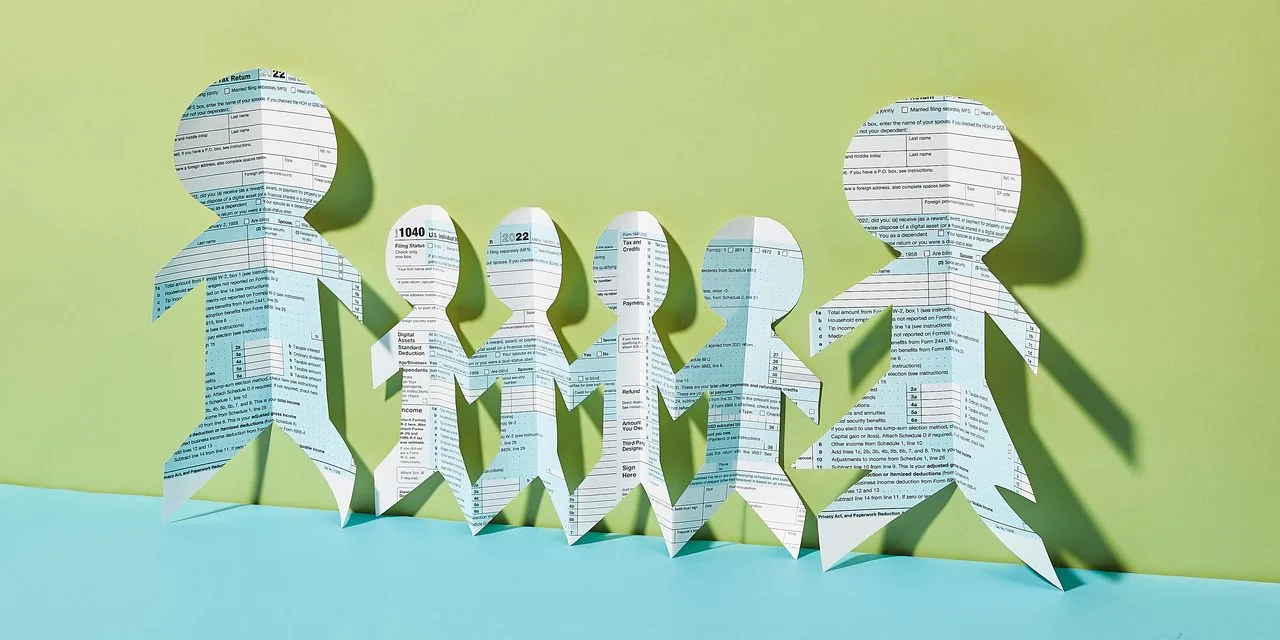Are you providing financial support to someone? If yes, you may be able to claim them as your dependant on your taxes and benefit from tax breaks in the 2023 tax year. Claiming eligible deductions for Having a Dependent is one of the tax credits offered by the Canada Revenue Agency (CRA), which allows Canadian taxpayers to lower their taxes. There are various options for eligible dependants, which can provide you with numerous benefits.
While you can claim your child or spouse, you can also get tax breaks for your nana or mom if they live with you. To determine whom to choose for maximum tax benefits for dependants this year, let’s look at the rules.

Maximizing Tax Benefits by Claiming Having a Dependent: Who Qualifies and How to Decide
If you’re caring for a relative, such as children, parents, or grandparents, as a single taxpayer without a spousal credit, you may be eligible to claim a dependant and receive a non-refundable tax credit. Although a non-refundable tax credit won’t result in a refund cheque, it directly reduces the tax you pay, and it can lower your income tax liability to zero.
However, there are limitations to how many dependants you can claim. You can only claim one dependant, regardless of the number of children or adults you support. Also, only one tax benefit can be claimed per household, even if you have more dependants or other people who can claim a dependant.
So, if you have a spouse, three children, and your mother living in your household, you’ll need to decide who to claim as your dependant. If your mother has a pension that disqualifies her as a dependant, one of your children (such as the one without a job) may be the best choice. Understanding the rules for claiming dependants can help you make the most of the tax benefits available to you.
How to Determine Eligibility for Dependant Credits in Canada
To determine eligibility for dependant credits in Canada, the CRA asks three questions:
- How are you related to your dependant? The CRA recognizes several relationships as the basis for dependant claims, including parents, grandparents, children, siblings, and even adopted family members. A dependant can also be someone with a mental or physical disability, regardless of age.
- Does your dependant live with you? If your relative lives with you and is financially dependent on you, you may be eligible to claim dependant credits for them. However, only one person in the household can claim credits for each dependant.
- How much does your depend?
Did you support a dependant who lived with you in your home while you were single, separated, divorced, or widowed?
It’s important to carefully read the description on the CRA website to ensure that you answer this question correctly. For instance, according to the CRA, if your partner did not live with you and neither of you supported the other, you would be considered “separated,” even if you didn’t have a legal separation. This means that you may still be eligible for the dependant tax credit.
Moreover, sometimes your dependant may not need to reside in your home to be eligible. For example, if your dependant lives in university residence during the school year but ordinarily resides with you outside of that time, the CRA will recognize that your dependant “lives with you” for the purpose of the dependant credit. Additionally, your dependant doesn’t need to live in Canada; if they resided with you previously, even in another country, they may still be eligible.
Moreover, there are several restrictions set by the CRA when it comes to claiming a dependant, such as:
- You cannot claim the dependant tax credit if someone else is already claiming the spouse or common-law partner tax credit for the same dependant.
- You cannot claim the dependant tax credit for your common-law partner.
- If more than one person is eligible to claim the dependant tax credit, you need to decide among yourselves who will claim the tax benefits. For example, if you share custody of a child, you and the other parent must agree on who will claim the dependant tax credit, or the CRA will decide that neither of you can claim it.
- Only one claim for the tax benefits for having a dependent can be made per household, even if there is more than one dependant living in the same house.
- You cannot claim having a dependent tax credit for a child you make support payments for, unless you were separated from the child’s other parent for the entire year. If you were separated for only part of the year, you might be allowed to claim the dependant tax credit for the child, provided that you do not also claim child support payments for that year. You should choose whichever option is more advantageous for your situation.

In addition to the spousal-type tax benefit for dependants, the Canadian tax system provides a child tax credit. Children under six years old can receive a maximum tax benefit of $6,997, while children aged six to 17 can receive up to $5,903. If you share custody of your children, the child tax credit is split 50-50. Additionally, if your child lives with a physical or mental disability, the CRA offers a child disability tax credit on top of the basic amounts.
It’s worth noting that some Canadian provinces offer their own child tax benefits. The accountants at Filingtaxing.ca can help you adjust your taxes to maximize the tax benefits available for claiming having a dependent in your province.










